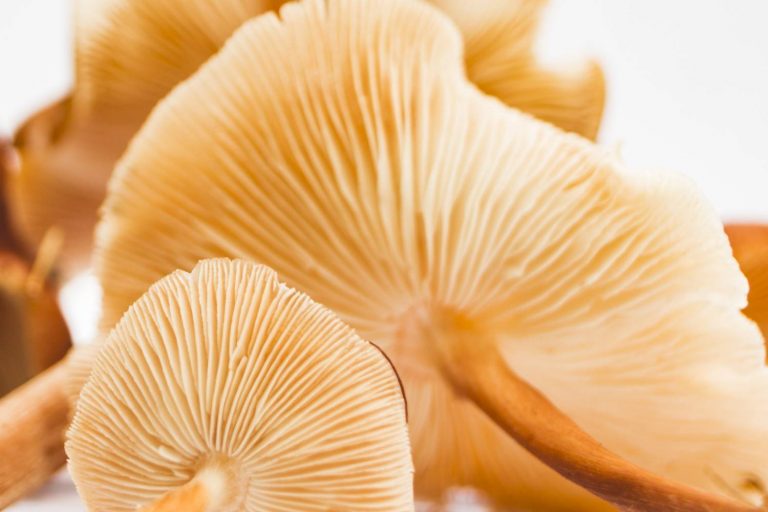Have you ever found yourself tossing and turning in bed, unable to shake off the day’s stress? You’re not alone. In our fast-paced world, finding relaxation at night can feel nearly impossible. But what if I told you that the answer might be hiding in your kitchen? That’s right! Certain cozy foods can actually help promote nighttime relaxation. So, grab a blanket and a cup of something warm, and let’s dive into five tasty options that can help you unwind and prepare for a restful night’s sleep.
Contents
1. Warm Milk: The Classic Comfort
Let’s kick things off with a classic: warm milk. This age-old remedy for sleepless nights isn’t just a myth. There’s some science behind it! Milk contains tryptophan, an amino acid that helps your body produce serotonin, the “feel-good” hormone. Serotonin can then be converted into melatonin, the hormone that regulates sleep.
Pros:
- Comforting Ritual: There’s something inherently soothing about sipping warm milk before bed. It can become a calming ritual that signals to your body it’s time to wind down.
- Nutritional Benefits: Besides tryptophan, milk is a good source of calcium, which is essential for maintaining healthy bones.
Cons:
- Lactose Intolerance: If you’re lactose intolerant, warm milk might not be your best option. The discomfort can outweigh the relaxation benefits.
- Caloric Intake: If you’re watching your calories, keep in mind that whole milk can be calorie-dense.
Tip: For a lactose-free version, try almond or oat milk, which can also be warmed up and enjoyed!
2. Herbal Tea: Nature’s Tranquilizer
When it comes to cozy nighttime beverages, herbal tea is hard to beat. Chamomile, in particular, has been praised for its calming effects. A study published in the Journal of Clinical Psychopharmacology suggests that chamomile may help reduce symptoms of anxiety and promote sleep.
Pros:
- Variety of Flavors: There’s a wide range of herbal teas available, from chamomile to peppermint to lemon balm, so you can find something that suits your taste.
- Hydration: Staying hydrated is crucial for overall health, and herbal teas can help you meet your fluid intake without caffeine.
Cons:
- Caffeine Sensitivity: While most herbal teas are caffeine-free, some blends might contain it, so always check the label.
- Potential Allergens: Some people might be allergic to specific herbs, so it’s wise to choose wisely.
Tip: Try blending chamomile with a hint of honey and lemon for an extra soothing effect.
3. Oatmeal: The Warm Bowl of Comfort
Oatmeal isn’t just for breakfast; it can be a comforting nighttime treat too! Oats are rich in carbohydrates, which can help boost serotonin levels. Plus, they’re packed with fiber, helping you feel full and satisfied.
Pros:
- Satiating: A warm bowl of oatmeal can keep you full through the night, preventing those pesky midnight snack cravings.
- Versatile: You can customize your oatmeal with fruits, nuts, or spices like cinnamon, making it a delicious option.
Cons:
- Sugar Additions: Be cautious about adding too much sugar or syrup, which can spike your blood sugar levels and disrupt sleep.
- Preparation Time: While instant oats are quick, they often contain additives. Opt for rolled or steel-cut oats for a healthier choice, but they take longer to prepare.
Tip: Add a sprinkle of cinnamon and a few slices of banana for a cozy, sweet twist!
4. Bananas: The Sleep-Inducing Snack
Speaking of bananas, these yellow fruits are not just for smoothies or breakfast. They’re packed with potassium and magnesium, both of which help relax muscles. Plus, bananas contain tryptophan, just like milk.
Pros:
- Convenience: Bananas are portable and require no preparation, making them a perfect late-night snack.
- Nutrient-Rich: They offer vitamins and minerals that can contribute to overall health, including vitamin B6, which aids in serotonin production.
Cons:
- Sugar Content: While healthy, bananas do contain natural sugars. Eating one too close to bedtime might not suit everyone’s dietary restrictions.
- Ripeness Matters: Overripe bananas can be too sugary, while underripe ones may not be as palatable.
Tip: Pair a banana with a spoonful of almond butter for a delicious and satisfying snack!
5. Dark Chocolate: The Sweet Surrender
Yes, you read that right! Dark chocolate can actually be a soothing nighttime treat. It contains magnesium, which can help relax muscles and promote better sleep. Plus, it’s rich in antioxidants, making it a deliciously healthy option.
Pros:
- Mood Booster: The flavonoids in dark chocolate can improve mood and potentially reduce stress.
- Variety: With different cocoa percentages available, you can choose a chocolate that suits your taste and dietary preferences.
Cons:
- Caffeine Content: Dark chocolate does contain some caffeine, which could interfere with sleep if consumed in large quantities or too close to bedtime.
- Caloric Density: It’s easy to overindulge, so moderation is key.
Tip: Aim for dark chocolate with at least 70% cocoa for maximum health benefits and enjoy a small piece after dinner.
FAQs
1. Can I eat these foods every night?
While these foods can promote relaxation, it’s best to keep your diet balanced. Enjoying them occasionally can be a comforting ritual, but moderation is key.
2. Are there any foods I should avoid before bed?
Yes! Foods high in sugar, caffeine, and heavy fats can disrupt sleep. It’s best to steer clear of things like coffee, spicy dishes, and large meals.
3. How long before bed should I eat?
A good rule of thumb is to finish eating at least two to three hours before you plan to sleep. This gives your body time to digest.
4. What if I’m allergic to some of these foods?
If you have allergies, always opt for alternatives that suit your dietary needs. For example, choose lactose-free milk or gluten-free oats.
Conclusion
Finding ways to unwind at night can be challenging, but incorporating these cozy foods into your evening routine might just do the trick. Whether it’s the warm hug of oatmeal, the soothing sip of herbal tea, or the sweet indulgence of dark chocolate, these foods can help you relax and prepare for a restful night’s sleep.
Remember, your nighttime routine is personal, so feel free to experiment and find what works best for you. And let’s be real; the journey to relaxation is just as important as the destination. So, here’s to cozy nights filled with delightful treats and restful sleep!
This article is for educational purposes only and is not a substitute for professional medical advice. Always consult a qualified healthcare provider before making changes to your health routine.
References
- Zick, S. M., & Wright, C. (2011). Chamomile and its effects on sleep. Journal of Clinical Psychopharmacology, 31(5), 564-570. https://doi.org/10.1097/JCP.0b013e31822b0f4f
- National Institutes of Health. (2020). The role of magnesium in sleep. https://www.ncbi.nlm.nih.gov/books/NBK100000/
- Mayo Clinic. (2018). Sleep tips: 7 steps to better sleep. https://www.mayoclinic.org/healthy-lifestyle/adult-health/in-depth/sleep-tips/art-20045990
Get Your FREE Natural Health Guide!
Subscribe now and receive our exclusive ebook packed with natural health tips, practical wellness advice, and easy lifestyle changes, delivered straight to your inbox.





